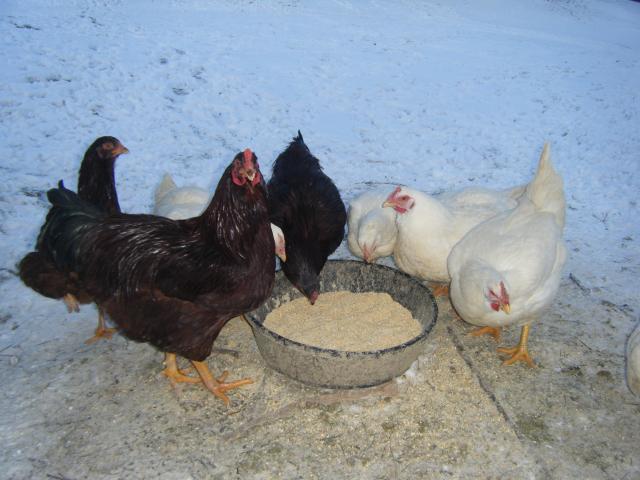Quote:
All birds have been selectively bred, but most can live past 12 weeks old and don't die at that young age due to organ failure.
I guess it depends on what you mean by "natural". For me, the Cornish Cross just ain't. They are born of an industry that considers animals to be machines, and are the extreme example of what happens with such thinking.
That and they can
talk!
No, wait... that's the dog. Never mind.
Again... that's an assumption... I don't see where people are getting these from? They live to breeding age just fine. I have 8 females right now that are thriving and literally are getting frustrated with all the snow... they find a piece of grass and they run to it.
l understand that cornish x's might not be for your but try not to make false assumptions on the breed based on false literature, pictures on the web, or even news. I read an article on Mother Earth News about cornish x's and they were slammed by them for no reason. There is a fine line between eye candy and losing money when raising chickens for meat... bottom line you lose money on heritage (unless you sell them for $5-6 / pound). SO maybe it's not about the money and your looking for flavor, well since flavor is affected by the amino acids a bird develops as it ages... it's not hard to raise a cornish x to 15 weeks and get that same flavor. In return you will get a 14 lb dressed weight chicken with the exact flavor of the dp breeds. Now the argument comes down to what? How pretty they look in your yard? I respect that... I will respect the fact that 20 different breeds of roosters are eye candy when grazing over pasture. I would believe that, over the argument that they taste better, or heart problems, or they are not natural.
Chickens are chickens.... the only thing that really effects the taste is age, feed, and how they are raised. There is a very slight difference in taste between breeds and 95% of people wouldn't taste the difference anyways. The difference between a 15 week old cornish and a 15 week old dark cornish is what? It's not taste... especially if they were allowed to graze over the same pasture... my cornish x hens graze just as far as my buckeyes (which buckeyes are supposed to be aggressive foragers) the difference would be in how much meat you would get from each bird. For my efforts, time, money... I would stick with the one that is the most efficient.
But then define efficient? Buying chicks every year from a hatchery is not your thing... and I respect that above all. You can't argue the fact that Cornish x's come from an outside sources, not like hatching your own. But for some, hatching your own just takes to much time... My point is... there are legit reasons to want / not want cornish x's and there are some that are based on absurd assumptions. When I hear people say I'm not raising cornish x's because they taste like mush, they are lazy, and die easy... I just want to make sure they are not mislead because those are assumptions.
I've raised both.... heritage and hybrids and they both have their place. I've raised them both to breeding age no problem.... so I guess the next thing would be to see how the taste in side by side comparison in a soup?


